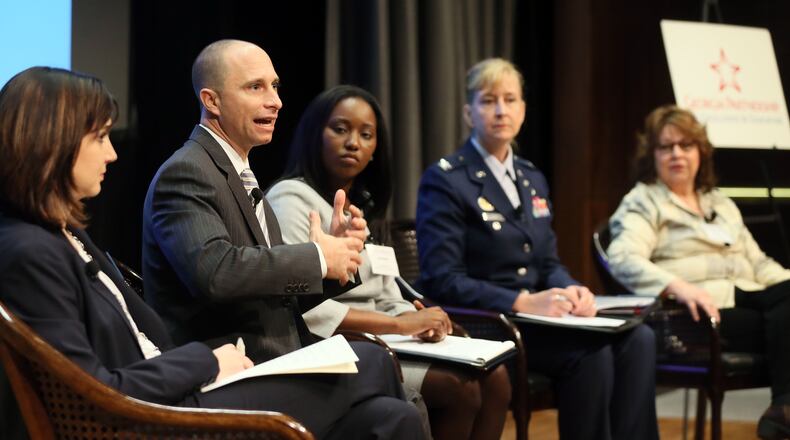The Georgia Partnership for Excellence in Education will present its annual list of the state’s top ten education issues today, with continued focus on funding, the school-to-workforce pipeline and the role school principals play.
The Top Ten Issues to Watch in 2020 will be unveiled at the group’s annual Media Symposium, which takes place at Georgia Public Broadcasting offices in Atlanta. Dana Rickman, vice president at the Georgia Partnership, said the list is compiled through conversations with educators, data experts, state leaders and others, looking at potential legislation as well as issues that might need some attention.
“One of the strengths of the partnership is we’re nonpartisan and we’re research-based,” she said. “We’re not going to be pushing an ideologically formed agenda. There’s so much discussion on education and education policy that we like to think we are a trusted resource to help inform the discussion based on research and fact and great outcomes for kids.”
Rickman said shifting demographics could present problems, according to a recently published report by the Southern Regional Economic Board that says there will be 1.5 million unemployable Georgians by 2030, based on current education achievement levels, among other things.
“So what we wanted to do is take a step back and from a higher level look at overall, what do we have to do as a system — from early learning all the way through post secondary completion — to make sure that all our citizens can engage in the workforce pipeline and we’re ready for 2030,” she said.
Principal leadership will be an item to follow in 2020, including how principals affect teacher recruitment and retention.
“I think that is one that has not gotten enough attention, but that is one we would like to raise up and get some people focused on,” she said. “We want to hit on most of the issues we think people will be talking about, but also take the opp to highlight one … we think is vitally important that is not on a lot of peoples’ radar.”
Other topics include literacy, looking at nonacademic barriers to education, and rural poverty.
Some items on the 2020 list were part of the 2019 list, in a way. While education funding in 2019 was still a concern because the impact of former Gov. Nathan Deal's decision to end a school funding deficit, potential cuts to education keep funding as a high priority in 2020.
Another is early learning, looking at the effects of changes made in the Early Learning Challenge Grant, and sustaining those. The state was to receive $51 million over four years to expand access to high-quality child care for low-income families, to increase training for early childhood teachers and to put extra resources into areas of the state where test scores and other indicators show the greatest need.
“A lot of these are top priorities for us and our partners as well,” she said. “So these are issues we will be following and working on throughout the year.”
About the Author
Keep Reading
The Latest
Featured



